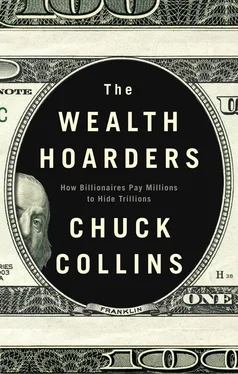“I want to be responsible about how my own income is earned. And I do feel responsible for doing what we can to alleviate suffering.”
“No Chuck, you and I are not responsible for the horrible suffering.” She sighs. “But we can each do our little part.” She starts to talk about the good work funded by her charity.
“I’m not really interested in philanthropy,” I interrupt gently, not wanting to be disrespectful. “Giving is important, of course. But it seems the first step is not to unfairly benefit from the current rules of the game.”
“Fairness is complicated,” Dee says. “Fairness for who?”
“Fairness for those who are left out by the current system – people who don’t own wealth and assets.”
“Are you a Marxist?” She eyes me.
“No, I thought I was being a Christian. Dee, I don’t believe the state should own businesses. But I do think there is a class system, and I’ve seen how it squeezes some people …”
She interrupts me: “There are good rich people and evil rich people. There are good poor people and evil poor people. It’s not as simple as you think.”
“Yes, Dee, of course.” I feel a wave of doubt. Maybe I am too idealistic. Maybe I am … foolish. Our salads and fish arrive, but I am so absorbed I hardly notice. Dee asks me what has given me these ideas. I describe my experience working with mobile home park residents and low-income tenants. I tell her about a group of tenants in Waterbury Connecticut who are organizing to save and buy their apartments. Dee listens with interest, munching on her food.
“Think of the money you could raise to solve these problems,” Dee says.
“But Dee, this is not about charitable giving – it is about returning to people what is rightfully theirs to start with. I want to address the roots of the problems, not just send charity band-aids. I want to have a bigger impact.”
“That’s good,” she affirms. “That’s right. But Chuck, you are a little naive … and selfish to be considering distributing your assets.”
“ Selfish? ” I feel stung. I have hardly touched my fish and Dee’s plate is empty.
“Come visit me next week at our family office,” she smiles, paying for the lunch with her initials on a white slip of paper. “We can talk some more then.” We say goodbye on the sidewalk of Commonwealth Avenue. It is an oddly dissatisfying conversation, between my still-evolving thoughts and Dee’s authoritative certainty. Over the next several months I see Dee at several events and even go to a party at her house. Each time she repeats her invitation to visit her at her “family office.” I am eager for another discussion, so we set a time.
I know about trust departments, like the division of the National Bank of Detroit that manages my personal treasure trove. But I have never heard of a “family office” – an entire organization dedicated to one family’s enterprise of wealth preservation and management. Dee’s family office is located in a downtown building and has the innocuous-sounding name of “North Haven Associates.” On the appointed weekday afternoon, I sign in with the security guard and show my driver’s license when asked for it – highly unusual in the early 1980s. I take the elevator to the twenty-first floor and ring a silver doorbell beside the office door. A receptionist leads me down a hallway of modern filing cabinets to Dee’s office.
Dee stands up from a Danish Modern teak desk to welcome me with a peck on the cheek. Her hair is pulled back, and she is wearing glasses for the first time since I’d met her, which she places on her desktop. “I have another joke for you,” she says with her now familiar grin. “Why don’t white Anglo-Saxon protestants engage in multiple-partner sex orgies?”
I am stunned. I can’t believe I am hearing this from her. “Why?” I sputter.
“Too many thank you notes.” She slaps her cheek in mock astonishment. Dee’s salty humor and warmth are disarming my cartoon-like image of Boston Brahmins. Even though we are unrelated, Dee is willing to adopt me as a long-lost nephew from a Midwestern branch of the family – and teach her hapless relation the “wealth facts of life.”
“What happens here?” I ask Dee, gazing out her window at the islands of Boston Harbor.
Dee explains that she keeps a desk at the family office, “for my correspondence and stuff.” She grins again. “Lots of thank you notes.” She takes me into the hallway and points out pictures of her ancestors. There are black and white pictures, mostly of white men, wearing suits or holding up large fish in rugged fishing camps. From the photos, I get an impression that some of the family wealth came from timber a long time ago.
“The family office is where our extended family comes together to manage our funds and charitable foundations.” We pass a room filled with wooden filing cabinets. I imagine them full of trust agreements and deeds embossed with antiquated seals. The conference room has padded leather chairs and a polished oak table with a silver water pitcher sitting on a teak tray. More family portraits and dark bookcases with law books and financial reports line the walls. An enormous picture window looks north to the Mystic River and the Tobin Bridge. I am mesmerized to see tiny trucks and cars lined up at the tollbooths.
“How many family offices are there like this?”
“In Boston?” Dee says, pondering my question. “Maybe several hundred serving the established New England families. There is an association of family offices. But most families use a reputable lawyer or a full-service firm, like Fidelity.” Dee explains that the principal activities of the office are trust and tax planning and distributing money to charities.
Like the silos of grain I grew up around in Michigan, these are Boston’s great warehouses of wealth. Billions and billions of dollars of paper wealth – land deeds, stock certificates, partnership agreements, wills, bonds, generation-skipping trusts – all entombed within comfortably appointed offices like this. “How do people find out about this?” I ask. I have no idea. It is a silly question the moment it leaves my mouth.
“Find out? Well, it’s not a secret,” says Dee. “But we don’t seek publicity. There is no reason.”
“What about the charitable foundations? How do people know where to apply?”
“Some of them are listed at the Grantmakers Association. But for the most part, we call you – you don’t call us.” Dee looks intently out the window. I know some money management firms seek clients by sponsoring Boston’s two public radio stations with taglines such as: “For over a century, helping successful families preserve and pass on wealth.” I am amused by all the euphemisms for wealthy, such as “prosperous,” “established,” and “successful.”
The whole time I am sitting in Dee’s conference room, I want to hover up and down State Street in Boston and float through walls to get a sense of the vastness of this wealth preservation machine – the thousands of men and women whose professional mission in life is to help the wealthy stay that way. They, in turn, earn high salaries and have comfortable lives. It is late afternoon, and from Dee’s window I can see hundreds of workers filing out of their office buildings toward commuter train and subway stations. I look at them with new eyes. These aren’t just generic office drones – many of them are Wealth Defense Industry workers.
Sitting with Dee, I think about all the others who have contemplated these great questions about wealth, poverty, usury, and ethics for a millennium. But mostly I think of the writer, Kurt Vonnegut. In Vonnegut’s novel God Bless You, Mr. Rosewater , the protagonist Eliot Rosewater is the son of a US senator and heir to a family fortune, made originally from Civil War profiteering and land speculation. Eliot rejects the trappings of wealth, moves to rural Rosewater County in Indiana, and establishes a one-man fire rescue and charitable social service agency. He alienates all his rich friends by telling them “whatever they have is based on dumb luck.”
Читать дальше











